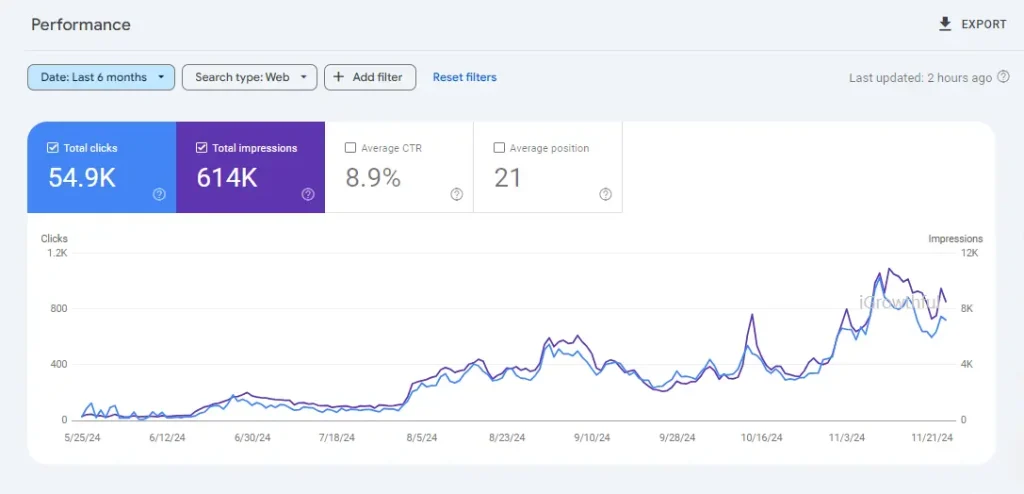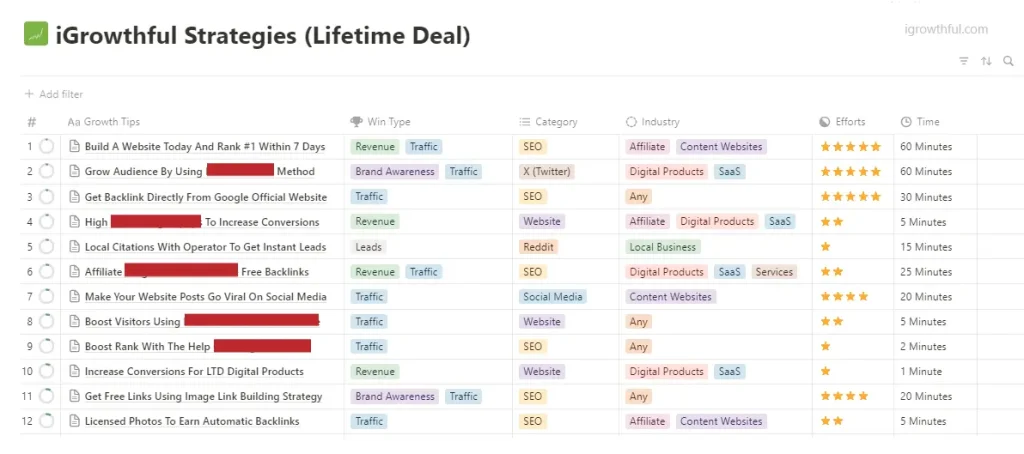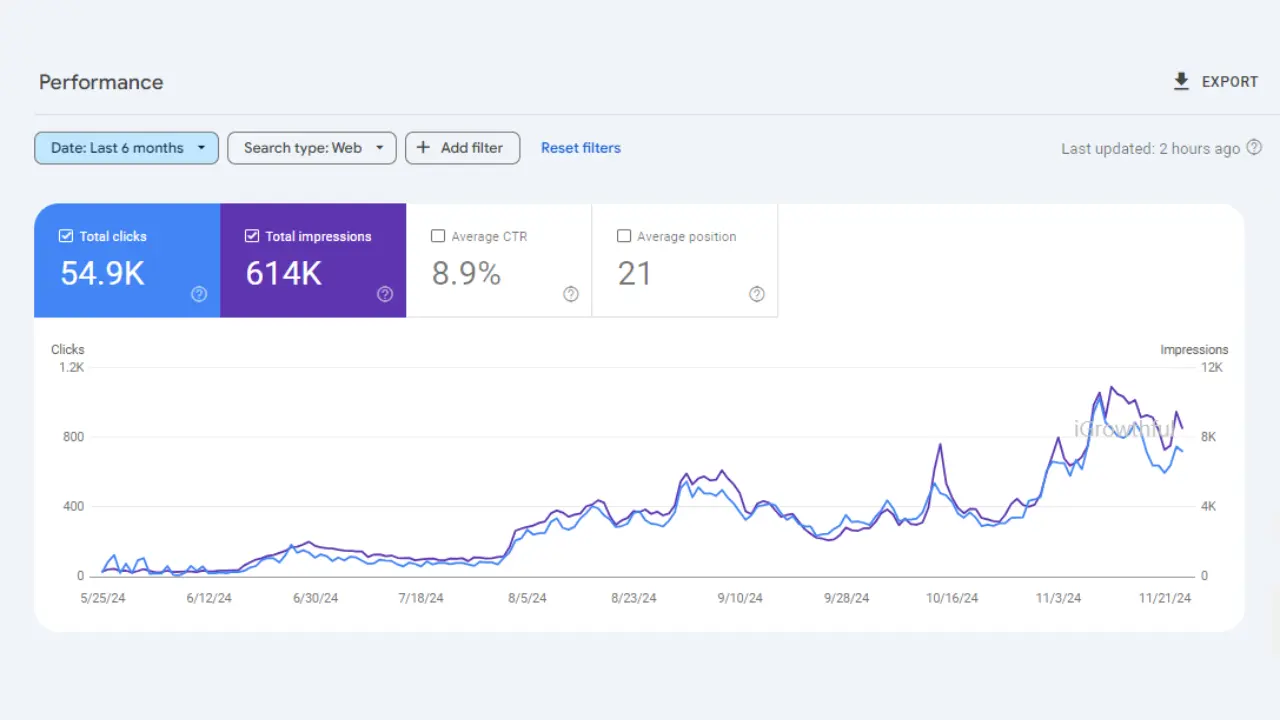Alright, let me share a little story about an affiliate content based website that I built just 7 months ago. It is like my online baby, tiny at first, but boy, has it grown super fast.
Here’s where we’re at:
- 54,900+ visitors
- 614,000+ impressions
- 3,000+ keywords ranked
See the Search Console data:

Did I bribe Google?
Nope.
Did I hack the system?
Not a chance.
The secret sauce was simple, I just optimized for relevant keywords.
Yes, that’s it.
Nothing fancy, nothing overly technical, just plain old keyword optimization. This keyword relevance is basically why this website has been able to grow traffic so fast.
By the way, let’s get started.
Step 1: Understanding What Google Really Wants
Have you ever wondered how Google decides which pages deserve to be on top?
Well, they’re not picking favorites based on looks.
Here’s the deal:
Google has a set of guidelines, and one of them is detailed in their How Search Works document. It is like a hidden, but open secret cheat sheet to understand Google Search Engine’s brain.

The key takeaway?
We look at quantifiable signals to assess relevance.
What does that mean?
It means Google wants to know if your content is relevant to what people are searching for. If it is, they will reward you with higher rankings, more impressions, and more traffic.
Step 2: Find Relevant Keywords

Here’s where the tools come in.
To find the right keywords, I used a few SEO tools that made the job easy.
✓ Ahrefs
It is like your personal detective. It analyzes the content that’s already ranking for your keywords and shows you what’s working. It’s a goldmine for finding related keywords and phrases.
✓ Surfer SEO
Surfer SEO is like having a GPS for your content strategy. It tells you exactly which keywords to include to make your content stand out. Plus, it even gives you optimization scores.
✓ Clearscope
Clearscope is another fantastic tool for keyword research. It analyzes top-ranking pages and provides a list of related keywords that you can use to enhance your content.
These tools all work similarly, so you don’t have to use all of them.
Just pick one and dive in.
For example, relevant terms would look like this:

Step 3: Writing Content That Google (and Humans) Love
Now, here’s the fun part, writing content.
If you’re worried about sounding like a robot or trying to game the system, relax. You don’t have to stuff your content with keywords like it’s a Thanksgiving turkey.
Instead, focus on creating in-depth, high-quality content that naturally includes relevant keywords.
Why does this work?
When you write extensively about a topic, you will naturally use the words and phrases people are searching for.
For example,
If you’re writing about how to bake a chocolate cake, you’ll probably mention words like:
- Chocolate
- Baking powder
- Oven temperature
- Ingredients
- Recipe
Google loves that.
They will see that your content is thorough and relevant.
Step 4: iGrowthful Strategies
Finally, I used my secret weapon for this affiliate site also. This is a collection of 250+ advanced SEO techniques (as well as other techniques) that I have developed over the years.

Some highlights:
- SEO Tips: I used around 7 SEO strategies to grow my website traffic more.
- Content Optimization: I used 3 content optimization strategies to boost rankings.
- Revenue Growth: I used 5 revenue growth tricks that helped me to go from $220 to $1400 in only 2 months.
For over the last 6 months, I have used at least 15 secret SEO Strategies from this database to drive consistent growth in traffic, impressions, and revenue for my website.
Summary
Here’s how I combined everything into a simple but effective strategy,
- Google’s Guidelines: I started by reading Google’s How Search Works document to understand what they look for in content.
- Find Relevant Keywords: Using tools like Ahrefs and Surfer SEO, I made a list of keywords that were highly relevant to my topics.
- Write High-Quality Content: I focused on creating content that was detailed, engaging, and useful to my audience.
- Results: SEO takes time, so I gave it a few months to see the results. And let me tell you, the wait was worth it.
Your Turn
Don’t think SEO is too complicated. Trust me, it is easier than it looks.
- Start small
- Pick a topic you’re passionate about
- Use an SEO tool to find relevant keywords
- And write content that adds real value to your readers
If I can do this, so can you.
Go make Google proud.
But don’t worry, your secret’s safe with me.
More Strategies:

